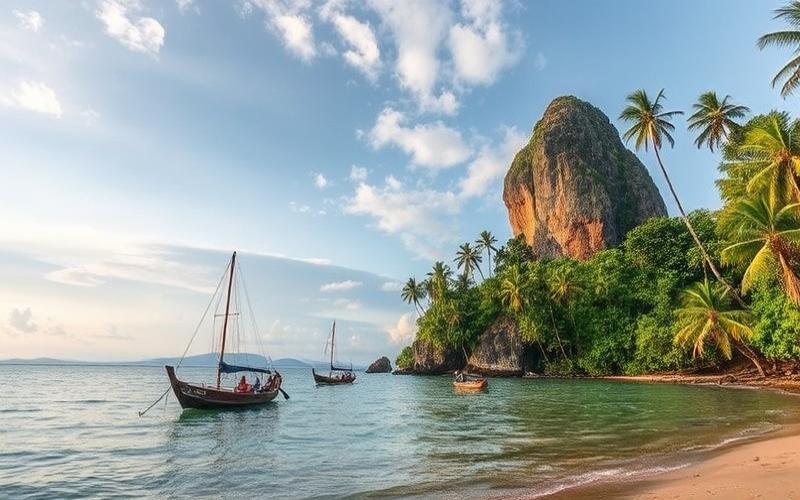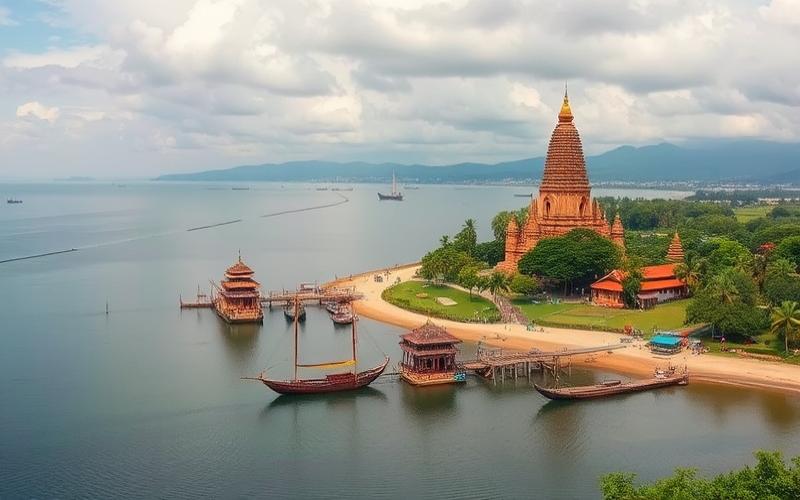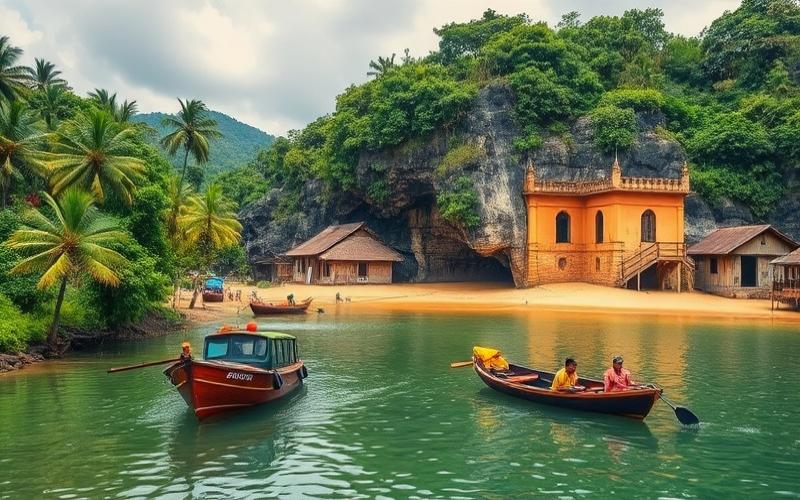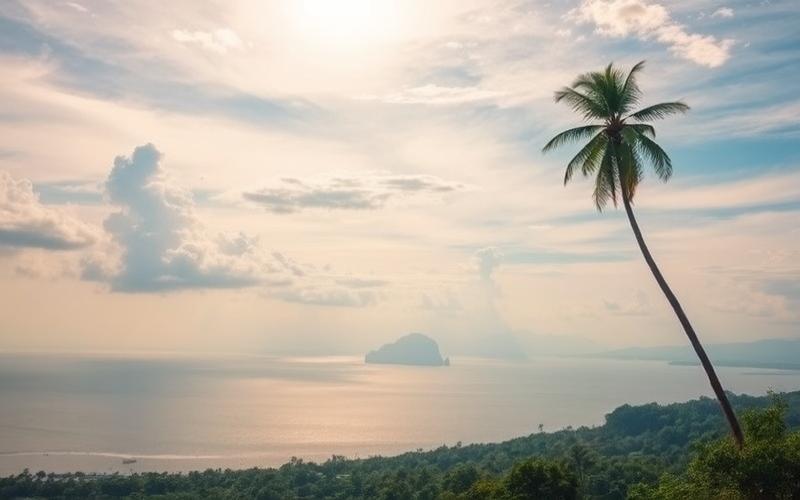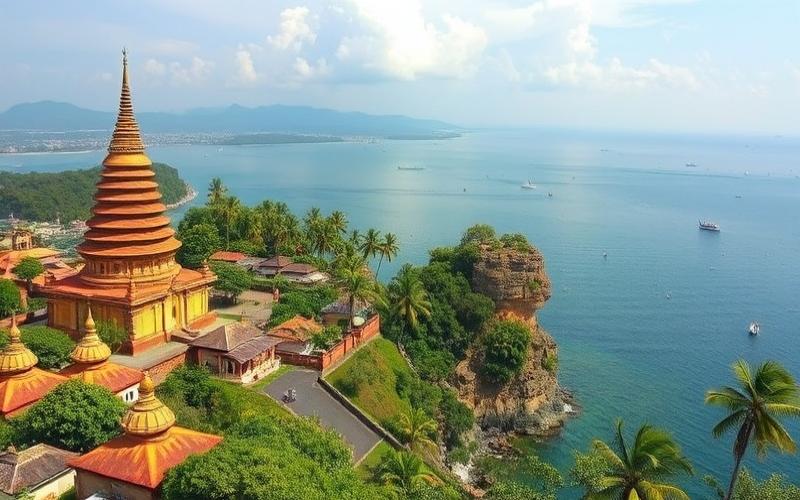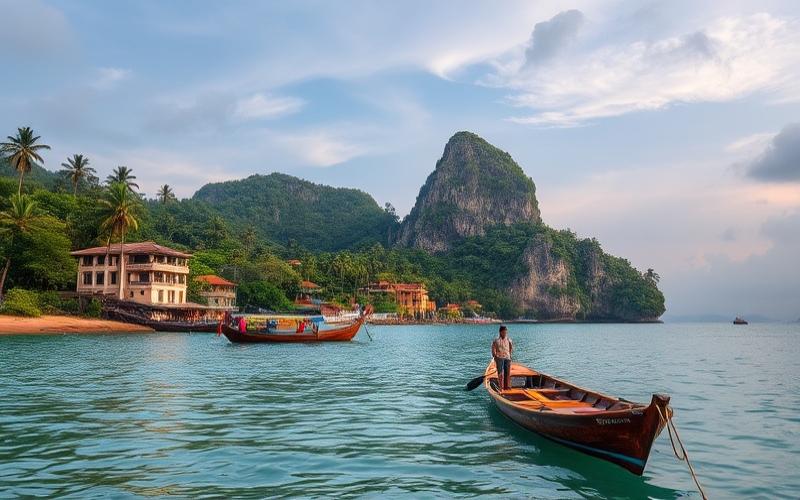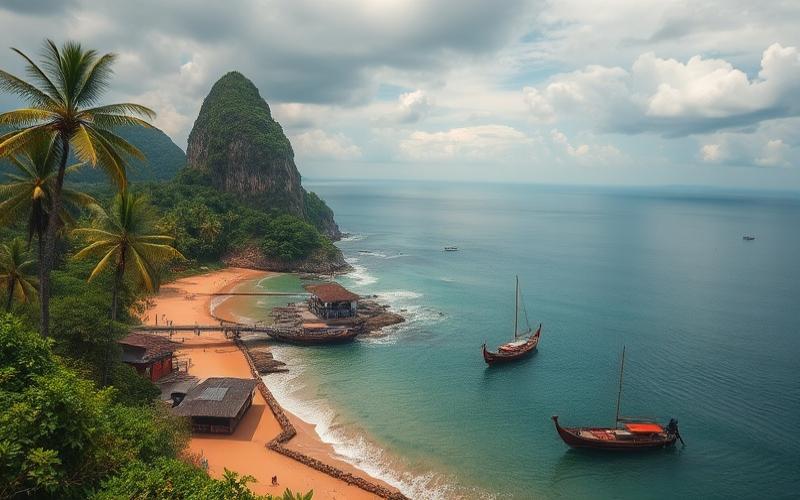
 Published on and written by Cyril Jarnias
Published on and written by Cyril Jarnias
Sri Lanka, nicknamed the “Pearl of the Indian Ocean,” has become an increasingly popular tourist destination in recent years. This growing popularity has significantly impacted the local real estate market, creating both opportunities and challenges for the country’s economy. In this article, we will explore in detail how tourism influences the Sri Lankan real estate sector, focusing on the most attractive areas, price trends, and rental investment prospects.
Sri Lanka’s Real Estate Gems: Dream Destinations
Sri Lanka is filled with paradise-like locations that attract tourists from around the world. This influx naturally impacts the local real estate market, with certain areas becoming particularly sought-after by investors and potential buyers.
The Southern Coast: A Beachfront Paradise
Sri Lanka’s southern coast, with its fine sandy beaches and turquoise waters, has become one of the most sought-after regions by tourists and real estate investors. Towns like Mirissa, Weligama, and Unawatuna have experienced a real estate boom in recent years, with a proliferation of construction projects for hotels, resorts, and luxury villas.
The Central Mountain Region: A Cool Haven
The mountainous regions in the country’s center, particularly around Kandy and Nuwara Eliya, are attracting more and more visitors seeking cool temperatures and lush landscapes. This growing popularity has led to increased real estate demand in these areas, with particular interest in properties offering panoramic views of tea plantations.
Colombo: The Capital in Transformation
Although Colombo isn’t strictly a tourist destination, Sri Lanka’s economic capital indirectly benefits from the tourism boom. Numerous large-scale real estate projects, including luxury hotels and high-end residential complexes, have emerged in recent years to meet the growing demand from business travelers and expatriates.
Good to Know:
The southern coastal areas, central mountain regions, and the capital Colombo are the main hubs for tourism-related real estate investments in Sri Lanka.
Soaring Prices: When Tourism Drives Up Real Estate Values
The influx of tourists and foreign investors has had a considerable impact on real estate prices in Sri Lanka’s most sought-after areas. This upward trend presents both advantages and disadvantages for the local economy and residents.
A Spectacular Increase in Tourist Areas
In regions most popular with tourists, real estate prices have seen significant increases in recent years. For example, in Mirissa, a highly sought-after beach resort on the southern coast, land prices have increased by over 200% between 2015 and 2024. This trend is also observed in other tourist destinations like Galle, Unawatuna, or Ella.
A Two-Tier Market
The price increases in tourist areas have created a two-tier real estate market in Sri Lanka. While properties located in regions favored by tourists reach record highs, prices remain relatively stable in less frequented areas. This disparity poses challenges in terms of housing accessibility for the local population in tourist regions.
Impact on the Local Economy
While rising real estate prices have helped attract foreign investment and stimulate the local economy, they have also created difficulties for some residents. Many Sri Lankans find themselves unable to purchase or rent properties in the most sought-after areas, which can lead to gentrification and population displacement phenomena.
Good to Know:
Real estate price increases in Sri Lanka’s tourist areas can reach up to 200% over a 10-year period, creating a two-tier market and posing challenges in terms of housing accessibility for the local population.
Rental Investment: A Windfall for Savvy Property Owners
The tourism boom in Sri Lanka has opened new perspectives for rental investment. More and more property owners, both local and foreign, are turning to seasonal rentals to make their real estate assets profitable.
The Vacation Rental Boom
With the increase in tourist numbers, demand for vacation accommodations has exploded. Online rental platforms like Airbnb have experienced phenomenal success in Sri Lanka, offering property owners the possibility to rent their properties at attractive rates. In some tourist regions, income generated from seasonal rentals can be up to three times higher than that from long-term rentals.
Opportunities for Foreign Investors
Sri Lanka’s real estate market is attracting more and more foreign investors, drawn by the prospects of high returns in the tourist rental sector. Although legislation imposes certain restrictions on property purchases by non-residents, there are legal means for foreigners to invest in Sri Lankan real estate, particularly through the creation of a local company or purchasing apartments in buildings with more than four floors.
The Challenges of Rental Management
Despite attractive opportunities, rental investment in Sri Lanka is not without challenges. Remote property management can prove complex, particularly in terms of maintenance and tenant relations. Additionally, tourism seasonality in certain regions can lead to vacancy periods, impacting the overall profitability of the investment.
Good to Know:
Rental investment in Sri Lanka’s tourist areas can generate income up to three times higher than long-term rentals, but requires careful management and a good understanding of the local market.
Future Challenges: Between Development and Preservation
The impact of tourism on Sri Lanka’s real estate market raises important questions for the country’s future. Authorities and sector stakeholders must address several challenges to ensure sustainable and balanced development.
The Need for an Adapted Regulatory Framework
Faced with the rapid growth of the tourist real estate sector, the Sri Lankan government must establish an adapted regulatory framework. Measures are needed to regulate real estate development, protect the environment, and guarantee housing access for the local population. For example, some municipalities are considering imposing affordable housing quotas in new real estate projects.
Preservation of Heritage and Environment
Real estate development related to tourism must not come at the expense of Sri Lanka’s cultural and natural heritage. Initiatives are being implemented to encourage the renovation of historical buildings rather than their destruction, and to promote environmentally friendly construction. These efforts aim to preserve the country’s authenticity and beauty, which are precisely what attracts tourists.
Toward More Sustainable Tourism
The future of Sri Lanka’s tourist real estate market is closely linked to the evolution of the tourism sector itself. More and more tourism and real estate stakeholders are moving toward more sustainable practices, in line with the expectations of a clientele increasingly concerned about the environmental impact of their travels. This trend could influence the type of real estate projects developed in the coming years, with a preference for ecological constructions integrated into their environment.
Good to Know:
The sustainable development of Sri Lanka’s tourist real estate market requires a balance between economic growth, heritage preservation, and environmental protection. Authorities and sector stakeholders are working to establish more responsible regulations and practices.
In conclusion, tourism’s impact on Sri Lanka’s real estate market is undeniable and multifaceted. While this influence has created numerous economic opportunities, it has also generated significant challenges in terms of housing accessibility and environmental preservation. The future of the sector will depend on the ability of authorities and private stakeholders to find a balance between economic development and sustainability, so that Sri Lanka can continue to attract visitors while preserving its unique identity and heritage.
Disclaimer: The information provided on this website is for informational purposes only and does not constitute financial, legal, or professional advice. We encourage you to consult qualified experts before making any investment, real estate, or expatriation decisions. Although we strive to maintain up-to-date and accurate information, we do not guarantee the completeness, accuracy, or timeliness of the proposed content. As investment and expatriation involve risks, we disclaim any liability for potential losses or damages arising from the use of this site. Your use of this site confirms your acceptance of these terms and your understanding of the associated risks.


